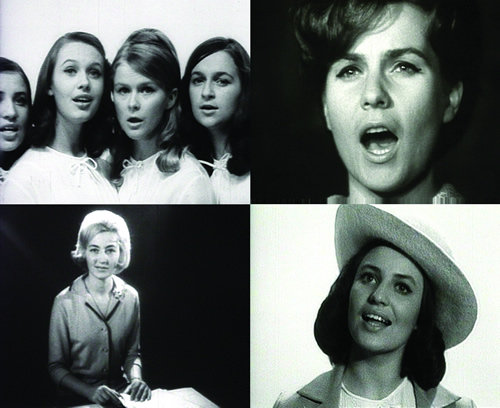Nomeda & Gediminas Urbonas
dal 13/3/2008 al 14/6/2008
Segnalato da
13/3/2008
Nomeda & Gediminas Urbonas
Museu d'Art Contemporani de Barcelona MACBA, Barcelona
Devices for action. The tow artists produce interactive projects exploring the conflicts and contradictions of former Soviet republics and their recent transition to capitalism. Their work engages in what belongs to the everyday, to the public and political social space and, though these are pieces that focus on local issues in Lithuania, they are imbued with a symbolism that extends their significance to embrace other societies that have experienced other expressions of modernity over the 20th century.

curated by Bartomeu Mari'
Nomeda and Gediminas Urbonas produce interactive projects exploring the conflicts and contradictions of former Soviet republics and their recent transition to capitalism.
Born in Lithuania and now living in Vilnius, these artists use the city as a catalyst and a starting point for their analysis of the various impacts caused by a new economic, social and political model on different sectors and generations in society. Their work engages in what belongs to the everyday, to the public and political social space and, though these are pieces that focus on local issues in Lithuania, they are imbued with a symbolism that extends their significance to embrace other societies that have experienced other expressions of modernity over the 20th century.
Generally speaking, their projects are composed and develop over different stages and are characterised by the key role played by the idea of the archive, the engagement of experts in different fields (design, music, architecture, etc.), the participation of diverse communities and actions of a collective nature. The show at MACBA will feature five projects that Gediminas and Nomeda Urbonas have produced since 2000:
-Transaction (2000-2005) focuses on the way women are represented in the media, and the impact of this on their social behaviour. The project structure includes a dialogue amongst feminist intellectuals in Lithuania, an archive of films made between 1947 and 1997 and comments by Lithuanian psychiatrists.
-Ruta-Remake (2002-2005) took the Transaction project as its starting-point to explore the “absence of women’s voices” in the media.
-Druzba (2003) is the name given to the gas pipeline that connected the former Eastern Bloc countries, from the Urals to East Germany. In Russian, “Druzba” means friendship, and the pipeline was a symbol of wellbeing, security and union. Built in the 1960s and 70s, the line came to symbolise the independence that protected the new communist states from the threat of the western market economy, and there was never for one moment the feeling that this might form part of a colonialist project. Gediminas and Nomeda Urbonas’s cartographic project begins with a series of parallel tales and stories in the form of recorded notes and personal diaries about the construction and development of the gas pipeline.
-Pro-test Lab (2005) Pro-test Lab is a work in which the artists joined and became catalysts for a movement protesting against the demolition of the Lietuva, the last cinema remaining in Vilnius city centre. By extension, the project also condemns the gradual erosion of public space, the imposition of a neo-liberal system and the destruction of cultural heritage.
-Villa Lituania (2007), which was presented at the Lithuanian Pavilion at the last Venice Biennial, is based on a symbolic restoration of the Villa Lituania, which housed the embassy of the First Republic of Lithuania (1918-1940) in Italy, serving as such from 1933 to 1940, when it became USSR property after the Soviet occupation of the Baltic. Even since the break-up of the Soviet Union in 1990-91 and the constitution of the Republic of Lithuania, the building has continued to be owned by Russia, housing the Russian Consulate in Rome.
MACBA
Plaza dels Angels 1- Barcelona



